#opposites attract is not interesting if one of the characters is a half baked concept 😖😖😖
Explore tagged Tumblr posts
Note
I had no idea you were also a Blackquill stan! Maybe I'm just not in the right spaces but I barely see any Blackquill stans in the AA fandom. He deserves more love :'))
BROOOO I am THEE blackquill stan HSHDHF my crazy for him is without peer😵💫😵💫😵💫 deserves his own game FOR SURE
I played dual destinies at like 11-12 and quite literally practiced my art by drawing him obsessively hhhhhhh I love him lots but I don't like interacting with many fandom spaces (it's why I kinda like that mysme fandom is mostly dead 🤭🤭🤭)
AA fandom is a lil too,,,, I guess tropey?? There are a few aspects I like and then like 90% of blackquill posts r just ship stuff that don't interest me at all 😒(I am 2 aroace for da world 🤧🤧🤧)
I think Simon is an incredible character on his own, I don't think tacking on relationships make him more interesting so I don't have much to add to the fandom, which sucks cause I was hoping that the remaster of the Apollo trilogy would create more diversity of blackquill fans,,,,,, oh well
but yeah I should post more of my blackquill art on here,,, I love him lots 💗
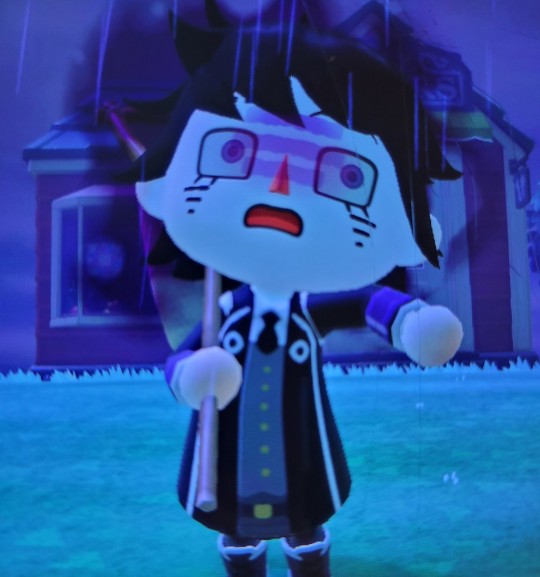
#literally the only thing that made me interested in soj was that simon and athena had a case together#they r the siblings of all time#sorry 2 all other blackquill stans#opposites attract is not interesting if one of the characters is a half baked concept 😖😖😖#BUT I WILL NAME NO NAMES!!!! if u like them good 4 u.....#but i only ever interact with the simon blackquill tag and thats how it will stay 🫣🫣🫣#anyway#ask me bout his time in jail and ill give u the most fucked headcannons 😋😋😋#i am a horror fan first#simon blackquill fan second#human being third#ask answered#cephy talks
4 notes
·
View notes
Text
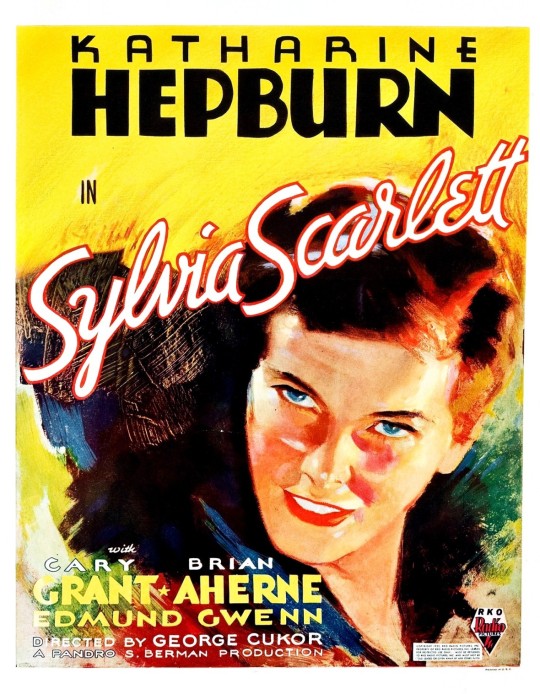
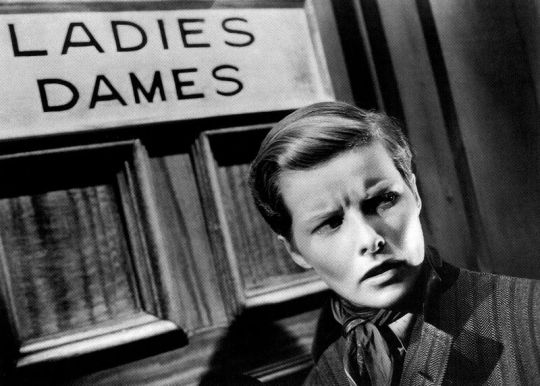
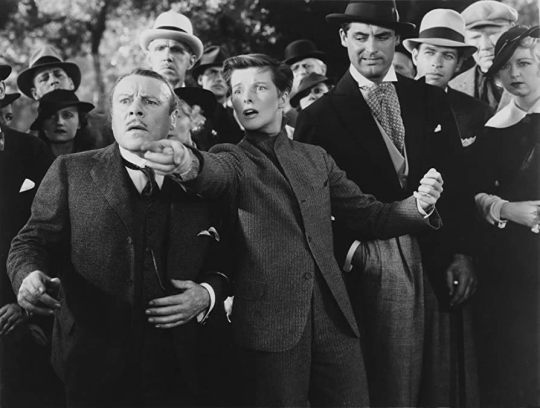
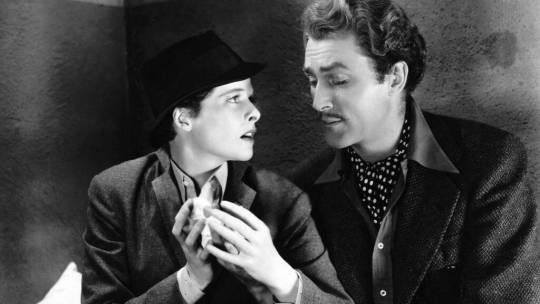
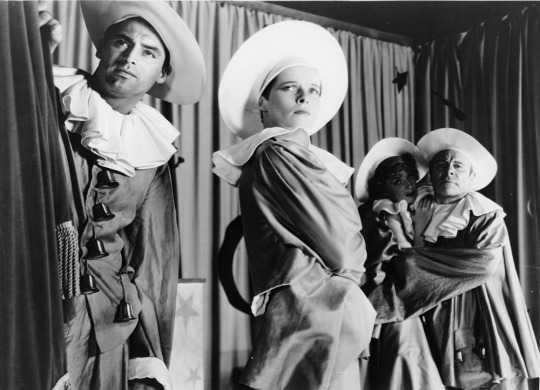
SYLVIA SCARLETT (1935)
Director: George Cukor
Cast: Katharine Hepburn, Cary Grant, Brian Aherne, Edmund Gwenn, Dennie Moore, Natalie Paley
A young girl disguises as a boy in order to escape the police.
This is one of my favorite movies. Which is pretty hilarious because this movie was completely panned when it came out and it actually lost $363,000. Katharine Hepburn, asked producers to destroy the film and offered to do another movie for free. Director George Cukor would never be hired at RKO again. Wild!!
This movie is credited as the start of Katharine becoming "box office poison". Hepburn would later say you'd have to have something wrong with you to love this movie. I don't disagree as there's something seriously wrong with me.
Didn't learn this until recently but blew my mind - this movie is adapted from a novel published in 1918. Imagine how ahead of its time this story was then, when it was still considered so in 1935! This makes it all the more important to remember that many of the terms we would use to describe anything around gender and sexuality today, didn't exist then. Concepts of sex, gender, sexuality where not distinctly defined from one another. Which all affects how you might code a character: who prefers the same sex and/or does not conform to gender.
A TCM article confirms that the movie's "sexual politics were ahead of its time". For example, Hepburn's character continues to dress in men's clothes even after the character didn't have to any longer completely. That utterly confused audiences at the time. Audiences would also walk out when it showed that both male and female characters were attracted to Hepburn's character.
I re-watched this with someone unfamiliar with older movies and they saw Michael Fane (played by Brian Aherne) as "negging" Scarlett's character. However, Fane's whining and criticisms towards Scarlett was not intended to get her interested in him (like toxic and goofy-ass dating "experts" would advise). If intentions didn't matter and it's just about slinging insults - any enemy to lovers trope would fall under negging. But then the context comes in...
With added context, Fane was actually interested in Sylvester and initially loses interest in them as Sylvia. It was almost night and day on first meeting "Sylvester" versus "Sylvia". His spiel on women was to indicate his past experience with Lily which he is unjustifiably attributing to all women. Beyond that, it also characterizes his disinterest in women, which is in opposition to what he is supposed to feel as a man. Thus he reluctantly chases Lily (the one who embodies the feminine ideal), yet never Sylvia despite Fane having been real keen when they were Sylvester. Note that he also starts to warm back up to Sylvia in men's clothes! And both characters on their escapade begin to realize they are more compatible with each other (versus the conman Monkley or the manipulative Lily). Imagine the audience reaction at the time - though you don't have to try so hard as there were plenty of written feedback (featured in the last link).
This is only half-baked in my mind at the moment but I think Monkley and Lily may both loosely represent what their respective sexes should be to a toxic extreme. While Fane is stuck in jail with Sylv he realizes their kindness and gushes over Sylv (yup, in men’s wear). “Clumsy, impetuous, generous, warm-hearted fool...” Meanwhile, Monkley realizes Lily is perfect for him because they are both terrible and lets Fane and Sylv run off. The message, to me, becomes about finding someone who shares the same values you do rather than the ideal "man" or "woman"!
This gets pretty dark for a comedy, specifically the side story about Scarlett's father. So general warning for that!
The "French" makes me wheeze with laughter every time I hear it. It's pure gibberish, with no attempt of forming an actual sentence in French.
This movie would later inspire the musical comedy Victor/Victoria (1982) starring Julie Andrews.
TCM Comments on Sylvia Scarlett (1935)
"The Men Who Made the Movies" portion with George Cukor on 'Sylvia Scarlett'
"A Woman's Lot" portion with Katharine Heburn talking about 'Sylvia Scarlett'
10 notes
·
View notes
Text
The Rise & Fall of Joss Whedon; the Myth of the Hollywood Feminist Hero
By Kelly Faircloth
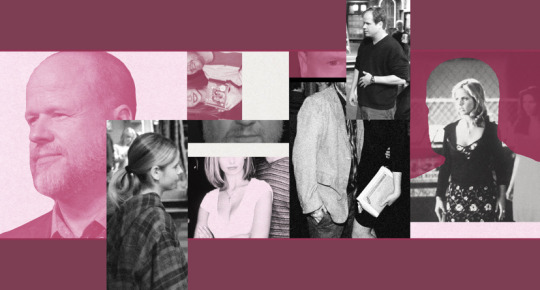
“I hate ‘feminist.’ Is this a good time to bring that up?” Joss Whedon asked. He paused knowingly, waiting for the laughs he knew would come at the creator of Buffy the Vampire Slayer making such a statement.
It was 2013, and Whedon was onstage at a fundraiser for Equality Now, a human rights organization dedicated to legal equality for women. Though Buffy had been off the air for more than a decade, its legacy still loomed large; Whedon was widely respected as a man with a predilection for making science fiction with strong women for protagonists. Whedon went on to outline why, precisely, he hated the term: “You can’t be born an ‘ist,’” he argued, therefore, “‘feminist’ includes the idea that believing men and women to be equal, believing all people to be people, is not a natural state, that we don’t emerge assuming that everybody in the human race is a human, that the idea of equality is just an idea that’s imposed on us.”
The speech was widely praised and helped cement his pop-cultural reputation as a feminist, in an era that was very keen on celebrity feminists. But it was also, in retrospect, perhaps the high water mark for Whedon’s ability to claim the title, and now, almost a decade later, that reputation is finally in tatters, prompting a reevaluation of not just Whedon’s work, but the narrative he sold about himself.
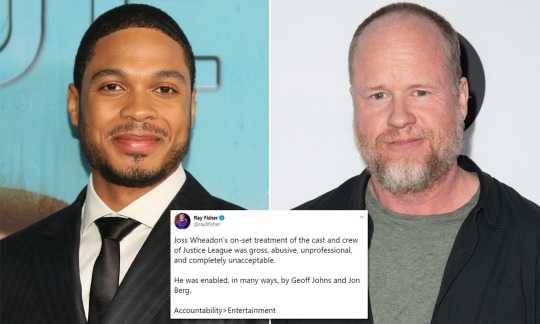
In July 2020, actor Ray Fisher accused Whedon of being “gross, abusive, unprofessional, and completely unacceptable” on the Justice League set when Whedon took over for Zach Synder as director to finish the project. Charisma Carpenter then described her own experiences with Whedon in a long post to Twitter, hashtagged #IStandWithRayFisher.
On Buffy the Vampire Slayer and Angel, Carpenter played Cordelia, a popular character who morphed from snob to hero—one of those strong female characters that made Whedon’s feminist reputation—before being unceremoniously written off the show in a plot that saw her thrust into a coma after getting pregnant with a demon. For years, fans have suspected that her disappearance was related to her real-life pregnancy. In her statement, Carpenter appeared to confirm the rumors. “Joss Whedon abused his power on numerous occasions while working on the sets of ‘Buffy the Vampire Slayer’ and ‘Angel,’” she wrote, describing Fisher’s firing as the last straw that inspired her to go public.
Buffy was a landmark of late 1990s popular culture, beloved by many a burgeoning feminist, grad student, gender studies professor, and television critic for the heroine at the heart of the show, the beautiful blonde girl who balanced monster-killing with high school homework alongside ancillary characters like the shy, geeky Willow. Buffy was very nearly one of a kind, an icon of her era who spawned a generation of leather-pants-wearing urban fantasy badasses and women action heroes.
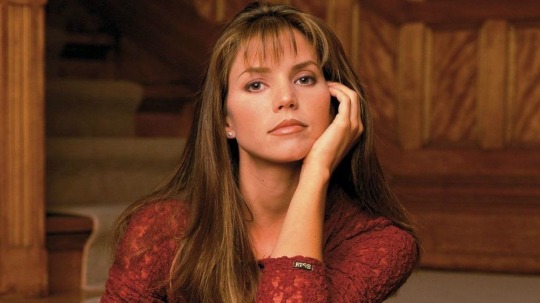
Buffy was so beloved, in fact, that she earned Whedon a similarly privileged place in fans’ hearts and a broader reputation as a man who championed empowered women characters. In the desert of late ’90s and early 2000s popular culture, Whedon was heralded as that rarest of birds—the feminist Hollywood man. For many, he was an example of what more equitable storytelling might look like, a model for how to create compelling women protagonists who were also very, very fun to watch. But Carpenter’s accusations appear to have finally imploded that particular bit of branding, revealing a different reality behind the scenes and prompting a reevaluation of the entire arc of Whedon’s career: who he was and what he was selling all along.
Buffy the Vampire Slayer premiered March 1997, midseason, on The WB, a two-year-old network targeting teens with shows like 7th Heaven. Its beginnings were not necessarily auspicious; it was a reboot of a not-particularly-blockbuster 1992 movie written by third-generation screenwriter Joss Whedon. (His grandfather wrote for The Donna Reed Show; his father wrote for Golden Girls.) The show followed the trials of a stereotypical teenage California girl who moved to a new town and a new school after her parents’ divorce—only, in a deliberate inversion of horror tropes, the entire town sat on top of the entrance to Hell and hence was overrun with demons. Buffy was a slayer, a young woman with the power and immense responsibility to fight them. After the movie turned out very differently than Whedon had originally envisioned, the show was a chance for a do-over, more of a Valley girl comedy than serious horror.
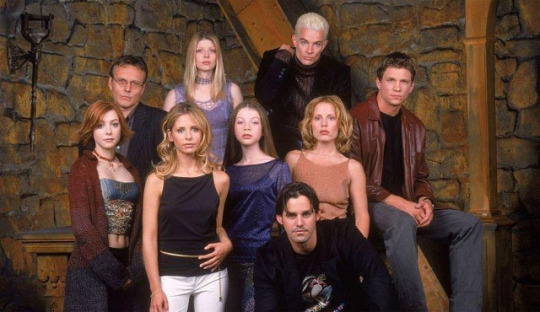
It was layered, it was campy, it was ironic and self-aware. It looked like it belonged on the WB rather than one of the bigger broadcast networks, unlike the slickly produced prestige TV that would follow a few years later. Buffy didn’t fixate on the gory glory of killing vampires—really, the monsters were metaphors for the entire experience of adolescence, in all its complicated misery. Almost immediately, a broad cross-section of viewers responded enthusiastically. Critics loved it, and it would be hugely influential on Whedon’s colleagues in television; many argue that it broke ground in terms of what you could do with a television show in terms of serialized storytelling, setting the stage for the modern TV era. Academics took it up, with the show attracting a tremendous amount of attention and discussion.
In 2002, the New York Times covered the first academic conference dedicated to the show. The organizer called Buffy “a tremendously rich text,” hence the flood of papers with titles like “Pain as Bright as Steel: The Monomyth and Light in ‘Buffy the Vampire Slayer,’” which only gathered speed as the years passed. And while it was never the highest-rated show on television, it attracted an ardent core of fans.
But what stood out the most was the show’s protagonist: a young woman who stereotypically would have been a monster movie victim, with the script flipped: instead of screaming and swooning, she staked the vampires. This was deliberate, the core conceit of the concept, as Whedon said in many, many interviews. The helpless horror movie girl killed in the dark alley instead walks out victorious. He told Time in 1997 that the concept was born from the thought, “I would love to see a movie in which a blond wanders into a dark alley, takes care of herself and deploys her powers.” In Whedon’s framing, it was particularly important that it was a woman who walked out of that alley. He told another publication in 2002 that “the very first mission statement of the show” was “the joy of female power: having it, using it, sharing it.”
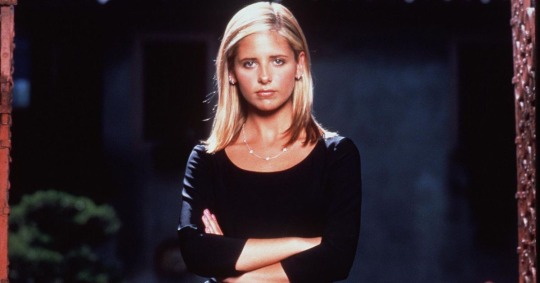
In 2021, when seemingly every new streaming property with a woman as its central character makes some half-baked claim to feminism, it’s easy to forget just how much Buffy stood out among its against its contemporaries. Action movies—with exceptions like Alien’s Ripley and Terminator 2's Sarah Conner—were ruled by hulking tough guys with macho swagger. When women appeared on screen opposite vampires, their primary job was to expose long, lovely, vulnerable necks. Stories and characters that bucked these larger currents inspired intense devotion, from Angela Chase of My So-Called Life to Dana Scully of The X-Files.
The broader landscape, too, was dismal. It was the conflicted era of girl power, a concept that sprang up in the wake of the successes of the second-wave feminist movement and the backlash that followed. Young women were constantly exposed to you-can-do-it messaging that juxtaposed uneasily with the reality of the world around them. This was the era of shitty, sexist jokes about every woman who came into Bill Clinton’s orbit and the leering response to the arrival of Britney Spears; Rush Limbaugh was a fairly mainstream figure.
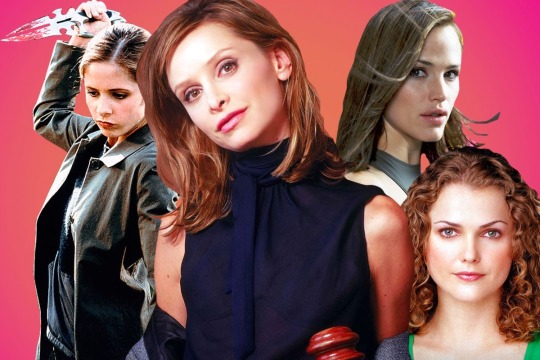
At one point, Buffy competed against Ally McBeal, a show that dedicated an entire episode to a dancing computer-generated baby following around its lawyer main character, her biological clock made zanily literal. Consider this line from a New York Times review of the Buffy’s 1997 premiere: “Given to hot pants and boots that should guarantee the close attention of Humbert Humberts all over America, Buffy is just your average teen-ager, poutily obsessed with clothes and boys.”
Against that background, Buffy was a landmark. Besides the simple fact of its woman protagonist, there were unique plots, like the coming-out story for her friend Willow. An ambivalent 1999 piece in Bitch magazine, even as it explored the show’s tank-top heavy marketing, ultimately concluded, “In the end, it’s precisely this contextual conflict that sets Buffy apart from the rest and makes her an appealing icon. Frustrating as her contradictions may be, annoying as her babe quotient may be, Buffy still offers up a prime-time heroine like no other.”
A 2016 Atlantic piece, adapted from a book excerpt, makes the case that Buffy is perhaps best understood as an icon of third-wave feminism: “In its examination of individual and collective empowerment, its ambiguous politics of racial representation and its willing embrace of contradiction, Buffy is a quintessentially third-wave cultural production.” The show was vested with all the era’s longing for something better than what was available, something different, a champion for a conflicted “post-feminist” era—even if she was an imperfect or somewhat incongruous vessel. It wasn’t just Sunnydale that needed a chosen Slayer, it was an entire generation of women. That fact became intricately intertwined with Whedon himself.
Seemingly every interview involved a discussion of his fondness for stories about strong women. “I’ve always found strong women interesting, because they are not overly represented in the cinema,” he told New York for a 1997 piece that notes he studied both film and “gender and feminist issues” at Wesleyan; “I seem to be the guy for strong action women,’’ he told the New York Times in 1997 with an aw-shucks sort of shrug. ‘’A lot of writers are just terrible when it comes to writing female characters. They forget that they are people.’’ He often cited the influence of his strong, “hardcore feminist” mother, and even suggested that his protagonists served feminist ends in and of themselves: “If I can make teenage boys comfortable with a girl who takes charge of a situation without their knowing that’s what’s happening, it’s better than sitting down and selling them on feminism,” he told Time in 1997.
When he was honored by the organization Equality Now in 2006 for his “outstanding contribution to equality in film and television,” Whedon made his speech an extended riff on the fact that people just kept asking him about it, concluding with the ultimate answer: “Because you’re still asking me that question.” He presented strong women as a simple no-brainer, and he was seemingly always happy to say so, at a time when the entertainment business still seemed ruled by unapologetic misogynists. The internet of the mid-2010s only intensified Whedon’s anointment as a prototypical Hollywood ally, with reporters asking him things like how men could best support the feminist movement.
Whedon’s response: “A guy who goes around saying ‘I’m a feminist’ usually has an agenda that is not feminist. A guy who behaves like one, who actually becomes involved in the movement, generally speaking, you can trust that. And it doesn’t just apply to the action that is activist. It applies to the way they treat the women they work with and they live with and they see on the street.” This remark takes on a great deal of irony in light of Carpenter’s statement.
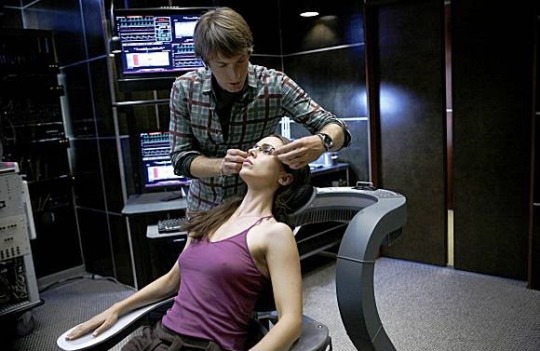
In recent years, Whedon’s reputation as an ally began to wane. Partly, it was because of the work itself, which revealed more and more cracks as Buffy receded in the rearview mirror. Maybe it all started to sour with Dollhouse, a TV show that imagined Eliza Dushku as a young woman rented out to the rich and powerful, her mind wiped after every assignment, a concept that sat poorly with fans. (Though Whedon, while he was publicly unhappy with how the show had turned out after much push-and-pull with the corporate bosses at Fox, still argued the conceit was “the most pure feminist and empowering statement I’d ever made—somebody building themselves from nothing,” in a 2012 interview with Wired.)
After years of loud disappointment with the TV bosses at Fox on Firefly and Dollhouse, Whedon moved into big-budget Hollywood blockbusters. He helped birth the Marvel-dominated era of movies with his work as director of The Avengers. But his second Avengers movie, Age of Ultron, was heavily criticized for a moment in which Black Widow laid out her personal reproductive history for the Hulk, suggesting her sterilization somehow made her a “monster.” In June 2017, his un-filmed script for a Wonder Woman adaptation leaked, to widespread mockery. The script’s introduction of Diana was almost leering: “To say she is beautiful is almost to miss the point. She is elemental, as natural and wild as the luminous flora surrounding. Her dark hair waterfalls to her shoulders in soft arcs and curls. Her body is curvaceous, but taut as a drawn bow.”
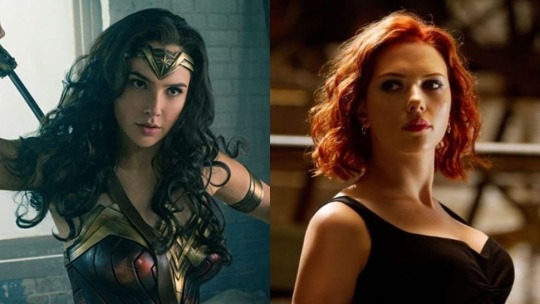
But Whedon’s real fall from grace began in 2017, right before MeToo spurred a cultural reckoning. His ex-wife, Kai Cole, published a piece in The Wrap accusing him of cheating off and on throughout their relationship and calling him a hypocrite:
“Despite understanding, on some level, that what he was doing was wrong, he never conceded the hypocrisy of being out in the world preaching feminist ideals, while at the same time, taking away my right to make choices for my life and my body based on the truth. He deceived me for 15 years, so he could have everything he wanted. I believed, everyone believed, that he was one of the good guys, committed to fighting for women’s rights, committed to our marriage, and to the women he worked with. But I now see how he used his relationship with me as a shield, both during and after our marriage, so no one would question his relationships with other women or scrutinize his writing as anything other than feminist.”
But his reputation was just too strong; the accusation that he didn’t practice what he preached didn’t quite stick. A spokesperson for Whedon told the Wrap: “While this account includes inaccuracies and misrepresentations which can be harmful to their family, Joss is not commenting, out of concern for his children and out of respect for his ex-wife. Many minimized the essay on the basis that adultery doesn’t necessarily make you a bad feminist or erase a legacy. Whedon similarly seemed to shrug off Ray Fisher’s accusations of creating a toxic workplace; instead, Warner Media fired Fisher.
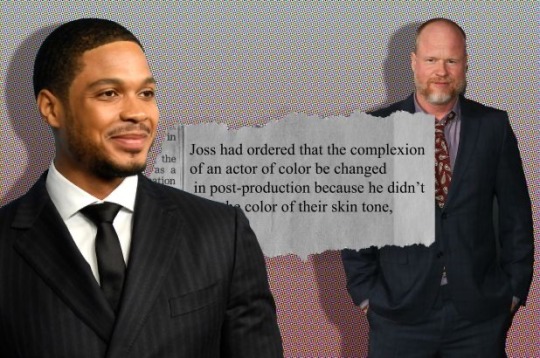
But Carpenter’s statement—which struck right at the heart of his Buffy-based legacy for progressivism—may finally change things. Even at the time, the plotline in which Charisma Carpenter was written off Angel—carrying a demon child that turned her into “Evil Cordelia,” ending the season in a coma, and quite simply never reappearing—was unpopular. Asked about what had happened in a 2009 panel at DragonCon, she said that “my relationship with Joss became strained,” continuing: “We all go through our stuff in general [behind the scenes], and I was going through my stuff, and then I became pregnant. And I guess in his mind, he had a different way of seeing the season go… in the fourth season.”
“I think Joss was, honestly, mad. I think he was mad at me and I say that in a loving way, which is—it’s a very complicated dynamic working for somebody for so many years, and expectations, and also being on a show for eight years, you gotta live your life. And sometimes living your life gets in the way of maybe the creator’s vision for the future. And that becomes conflict, and that was my experience.”
In her statement on Twitter, Carpenter alleged that after Whedon was informed of her pregnancy, he called her into a closed-door meeting and “asked me if I was ‘going to keep it,’ and manipulatively weaponized my womanhood and faith against me.” She added that “he proceeded to attack my character, mock my religious beliefs, accuse me of sabotaging the show, and then unceremoniously fired me following the season once I gave birth.” Carpenter said that he called her fat while she was four months pregnant and scheduled her to work at 1 a.m. while six months pregnant after her doctor had recommended shortening her hours, a move she describes as retaliatory. What Carpenter describes, in other words, is an absolutely textbook case of pregnancy discrimination in the workplace, the type of bullshit the feminist movement exists to fight—at the hands of the man who was for years lauded as a Hollywood feminist for his work on Buffy the Vampire Slayer and Angel.
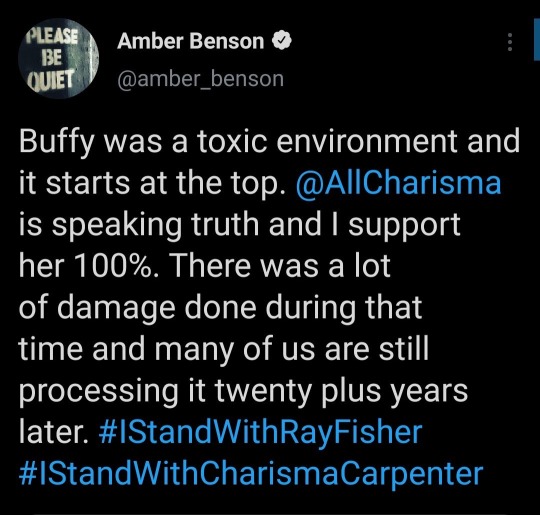
Many of Carpenter’s colleagues from Buffy and Angel spoke out in support, including Buffy herself, Sarah Michelle Gellar. “While I am proud to have my name associated with Buffy Summers, I don’t want to be forever associated with the name Joss Whedon,” she said in a statement. Just shy of a decade after that 2013 speech, many of the cast members on the show that put him on that stage are cutting ties.
Whedon garnered a reputation as pop culture’s ultimate feminist man because Buffy did stand out so much, an oasis in a wasteland. But in 2021, the idea of a lone man being responsible for creating women’s stories—one who told the New York Times, “I seem to be the guy for strong action women”—seems like a relic. It’s depressing to consider how many years Hollywood’s first instinct for “strong action women” wasn’t a woman, and to think about what other people could have done with those resources. When Wonder Woman finally reached the screen, to great acclaim, it was with a woman as director.
Besides, Whedon didn’t make Buffy all by himself—many, many women contributed, from the actresses to the writers to the stunt workers, and his reputation grew so large it eclipsed their part in the show’s creation. Even as he preached feminism, Whedon benefitted from one of the oldest, most sexist stereotypes: the man who’s a benevolent, creative genius. And Buffy, too, overshadowed all the other contributors who redefined who could be a hero on television and in speculative fiction, from individual actors like Gillian Anderson to the determined, creative women who wrote science fiction and fantasy over the last several decades to—perhaps most of all—the fans who craved different, better stories. Buffy helped change what you could put on TV, but it didn’t create the desire to see a character like her. It was that desire, as much as Whedon himself, that gave Buffy the Vampire Slayer her power.
161 notes
·
View notes
Note
Yooo for the detailed headcanon meme would u mind doing like... all the ones ure able to for Hanschen? Like feel free to skip as many as u want but itd be cool to hear ur thoughts on my Best Boy
Um? Little Hansy Rilow? Jackass Extraordinaire? Love of my life? Ofc I’ll do as many as I can!! Thanks so much for sending these! I hope you like them and I’m sorry they took me so long! (Also I answered these out of order and towards the end I was running a bit low on steam so there are some answers that are Not So Good mixed in there, sorry)
Under the cut or on Ao3 here :)
1. What does their bedroom look like?
I think for the most part it would be tidy. Bed made, desk (mostly) clear, etc. He’s got some laundry on the floor, a couple of books lying about, and his jacket as well as his school things are never put away but everything else is in it’s place.
His desk is by the window so he can make good use of natural light and It’s usually got assignments for school on it as well as whatever books might go along with them when he’s not using it.
He keeps a small collection of books in his room- his favourites. Whatever he’s currently reading is kept on his bedside table and everything else is stacked by his desk but they should be on the shelf in the living room.
He’s a nerd.
2. Do they have any daily rituals?
I don’t think he would, not outside what he needs to do (school). Not unless you count him monologuing while he masturbates as a ritual, I have a feeling that’s a daily thing.
3. Do they exercise, and if so, what do they do? How often?
He does not, he would much rather lounge somewhere comfy with something he finds enjoyable. A book, a person, a puzzle, etc.
4. What would they do if they needed to make dinner but the kitchen was busy?
I can see him being like “Everybody, get out of my way” (This is meant to be read in John Mulaney’s voice from the thing where he followed this with something like “I’m just here to feed my birds”) but I can also see him just clearing enough space for himself and getting to work. I guess it depends on who’s in the kitchen making what and what he’s going to be making. He’s not going to be interrupting someone that’s making cake or pastries just so he can cut vegetables in peace.
5. Cleanliness habits (personal, workspace, etc.)
His parents/governess were somewhat strict about cleanliness when he was a child so he makes an effort to keep himself well groomed, especially when adults are present. No dirt under his fingernails, his clothes and hair are neat etc. He’s less concerned about it when he’s with the other boys and even less when he’s relaxing, either by himself or with Ernst, but he still somewhat pays attention to how much dirt he’s getting on himself or how much work it will take him to make himself look properly presentable before he finds himself around adults again.
I think I got into workspace okay with his bedroom? He’s mostly tidy because he has to be, any disorder in his room can easily be taken care of.
6. Eating habits and sample daily menu
I think he would love sweet things (candy, fruit, berries, etc) and he’s always a slut for baked goods. I have no idea what kind of things ppl usually ate in 1890′s Germany.
7. Favorite way to waste time and feelings surrounding wasting time
He only really considers time wasted if he’s not spending it on something he likes to do or needs to do. So he has no favourite way to waste time, he only feels as though he’s wasting time if he’s bored out of his mind for no good reason.
8. Favorite indulgence and feelings surrounding indulging
Ernst. It really isn’t safe for him to be smooshing booties in a vineyard with another boy but? He’s doing it. And being all poetic about it too ofc, he really likes Ernst.
If he can indulge he will, he loves it. Life’s too short to deny himself pleasure, so long as said pleasure doesn’t harm him and/or get in the way of him becoming a millionaire.
9. Makeup?
None. I can see him maybe trying, or at least wanting to try makeup at some point? Never with anyone around or if there was a chance of someone catching him though. (I’m a sucker for boys in makeup tho and I think modern Hanschen would enjoy makeup. If u want to hear a bit more abt that u know how 2 contact me)
10. Neuroses? Do they recognize them as such?
Neurotypical Hans™
11. Intellectual pursuits?
Literature and languages. He loves reading, loves diving into a book and analyzing characters, plot, symbolism, all of it. He loves talking about them as well, he could talk for hours about his favourites. He’s fascinated by other languages and speaks a handful rather fluently as an adult. He probably also enjoys reading the same book but translated into different languages because no translation is exact and it’s always interesting to see a slightly different take on things.
I can also see him having interest in biology? Because science is fascinating and it’s amazing how diverse and intricately designed living things can be.
12. Favorite book genre?
He talks about the books he likes when he’s jerking off so I don’t think I really need to get into that lmao
13. Sexual Orientation? And, regardless of own orientation, thoughts on sexual orientation in general?
Multisexual. Bi/pan/ply/whatever. A pretty person is a pretty person & all that.
I think he might see the idea of sexual orientation as a little silly or perhaps performative? He understands that he’s expected to only like women and knows that once he’s older he’ll be expected to marry one, to have children etc etc. So for the most part he keeps his attraction to men to himself (Ernst being a very obvious exception, likely not the only one but it’s not something he would ever reveal lightly) and he thinks that most people are doing the same in order to avoid being judged negatively by their community.
Something along the lines of “everyone is only acting like they’re exclusively attracted to the opposite sex because it’s what’s seen as normal. They don’t want everyone else to point fingers at them calling them sinners and sexual deviants and condemning them to hell so they deny themselves half the beauty the world has to offer. For this same reason, they’re quick to attack anyone around them who might be revealed as queer. They’re so focused on keeping their own secret safe that they never realize everyone around them is keeping exactly the same one.”
14. Physical abnormalities? (Both visible and not, including injuries/disabilities, long-term illnesses, food-intolerances, etc.)
¯\_(ツ)_/¯
15. Biggest and smallest short term goal?
¯\_(ツ)_/¯
16. Biggest and smallest long term goal?
Biggest: “When I am amillionaire”Smallest: I don’t think he has any small goals tbh ?
17. Preferred mode of dress and rituals surrounding dress
I’m not rly sure what this one’s asking tbh?? He likes looking nice tho.
18. Favorite beverage?
Hot chocolate
19. What do they think about before falling asleep at night?
Have you prayed tonight, Desdemona?
(I think a recurring theme would be his future- what he wants, what he can get, how he can get it etc.)
20. Childhood illnesses? Any interesting stories behind them?
¯\_(ツ)_/¯
21. Turn-ons? Turn-offs?
I’m stickin 2 sex ones bc otherwise it’s Too Vague and stresses me tf out tbh
Turn-ons: hair pulling, necking (he loves hickies but he’s strict about not having any that might be visible), being straddled, nice thighs, a good ass, little gasps and moans, begging
Turn-offs: bad kissing, poor hygiene, not listening to/paying attention to his feedback, going too fast (Mr. “half-closed eyes, half-open mouths, and turkish draperies” would Def love foreplay and teasing,, trying to skip right over it is? A no.)
22. Given a blank piece of paper, a pencil, and nothing to do, what would happen?
¯\_(ツ)_/¯
23. How organized are they? How does this organization/disorganization manifest in their everyday life?
See 1
24. Is there one subject of study that they excel at? Or do they even care about intellectual pursuits at all?
See 11 (he’s pretty good at everything tho)
25. How do they see themselves 5 years from today?
Long dead because it’s 2017, but 5 years from the show he probably sees himself in university.
26. Do they have any plans for the future? Any contingency plans if things don’t workout?
I don’t know what his plans would be but I’m sure he’s got some cushy career in mind that he wants to work towards. He’s a Rilow, he doesn’t need a backup plan.
27. What is their biggest regret?
¯\_(ツ)_/¯
28. Who do they see as their best friend? Their worst enemy?
Ernst. His worst enemy is probably whoever is second in the class rankings, if you go by the play. Melchior in the musical. Little Hans is In It To Win It.
29. Reaction to sudden extrapersonal disaster (eg The house is on fire! What do they do?)
His brain shuts down for a minute and then he realizes that yes, this is happening and oh dear god I need to get out of here. He tries (and fails) to give the impression that he is calm, cool, and collected but he’s doing pretty good for someone who is screaming internally as loudly as he is.
30. Reaction to sudden intrapersonal disaster (eg close family member suddenly dies)
He just keeps going. He tries to act like everything is fine, to show that he’s strong. The second he’s alone he deflates. He’s depressed af but does everything he can to hide it.
31. Most prized possession?
I’m not sure what exactly, but it’s something fancy and adult that makes him feel sophisticated. He won’t admit how much he loves it though.
32. Thoughts on material possessions in general?
👌👀👌👀👌👀👌👀👌👀 good shit go౦ԁ sHit👌 thats ✔ some good👌👌shit right👌👌there👌👌👌 right✔there ✔✔if i do ƽaү so my self 💯 i say so 💯 thats what im talking about right there right there (chorus: ʳᶦᵍʰᵗ ᵗʰᵉʳᵉ) mMMMMᎷМ💯 👌👌 👌НO0ОଠOOOOOОଠଠOoooᵒᵒᵒᵒᵒᵒᵒᵒᵒ👌 👌👌 👌 💯 👌 👀 👀 👀 👌👌Good shit
33. Concept of home and family?
He thinks of it as faintly ridiculous.
“Why are these people somehow more important than others simply because you share blood? Shouldn’t the value of your relationship with someone have more to do with how well you get along and care for each other? What’s the point of marriage, you put on a show so you can have children as you’re expected to and this absurd cycle repeats with your children and so on.”
34. Thoughts on privacy? (Are they a private person, or are they prone to ‘TMI’?)
He greatly values his privacy, he usually only shares exactly as much information as is necessary. Unless he trusts you, in which case he doesn’t s hut the fu ck u p
35. What activities do they enjoy, but consider to be a waste of time?
See 7
36. What makes them feel guilty?
¯\_(ツ)_/¯
37. Are they more analytical or more emotional in their decision-making?
Analytical for the most part. He knows what he wants out of life and what he needs to do to put him on the path to getting it. I feel like he operates with a mindset a bit like “people can leave you but things are forever” and so he’s pretty okay with making decisions that hurt people (himself included) if it will benefit him financially, academically, raise his social status etc.
38. Would they consider themselves a Type A or Type B personality?
A? I don’t know tbh, my knowledge about this is limited to the 30 seconds I spent skimming the wiki article
39. What recharges them when they’re feeling drained?
Peace and quiet, being alone. Bonus points if he’s somewhere pretty and/or rly comfortable.
40. Would you say that they have a superiority-complex? Inferiority-complex? Neither?
I don’t feel I know enough about either to say lmao
41. How misanthropic are they?
He thinks people are ridiculous, h
ryan sent me a post abt dragon dicks which got me rambling abt this one furry i follow and. lowkey shattered my train of thought, I don’t remember what i was planing 2 say here and I’m too tired to start the Thought Translation Process over again lmao
42. Hobbies?
Reading, puzzles, Ernst, calligraphy,
43. How far did they get in formal education? What are their views on formal education vs self-education?
He completed university. The only real difference between formal education and self-education is if you have a diploma people will believe you when you say you know what you’re talking about.
44. Religion?
He’s whatever everyone else is. I don’t what religion everyone is in the show,, I don’t know shit abt religion tbh. But he believes in god, though he’s not as devout as everyone else.
45. Superstitions or views on the occult?
Foolish. Ridiculous. Absurd. Childish. He believes in them.
46. Do they express their thoughts through words or deeds?
Words mostly. He’s excellent with them and loves to talk and talk and talk.
47. If they were to fall in love, who (or what) is their ideal?
Ernst, probably. I don’t doubt that Hans loves him dearly but I don’t think he’s in love.
48. How do they express love?
He talks about milk.
I can’t think of anything lmao
49. If this person were to get into a fist fight, what is their fighting style like?
Tbh I can’t imagine him fighting. He probably just says something that pisses someone off and then gets knocked flat on his ass.
50. Is this person afraid of dying? Why or why not?
I don’t think so, I think he feels almost like. I don’t think invincible would be the right word, but he sees no reason to fear it at his age. Yes, Wendla and Moritz died, but he has no plans to kill himself and he can’t get pregnant so a botched abortion isn’t a threat to him. He’s in good health and he’s got his wits about him. What is there for him to be afraid of? He can worry about dying later.
#anon#answered#hc#hanschen#my writing#also tell me if i left something blank or dropped off mid sentence somewhere i think i finished all of them but im rly tired#but i might have missed something
22 notes
·
View notes